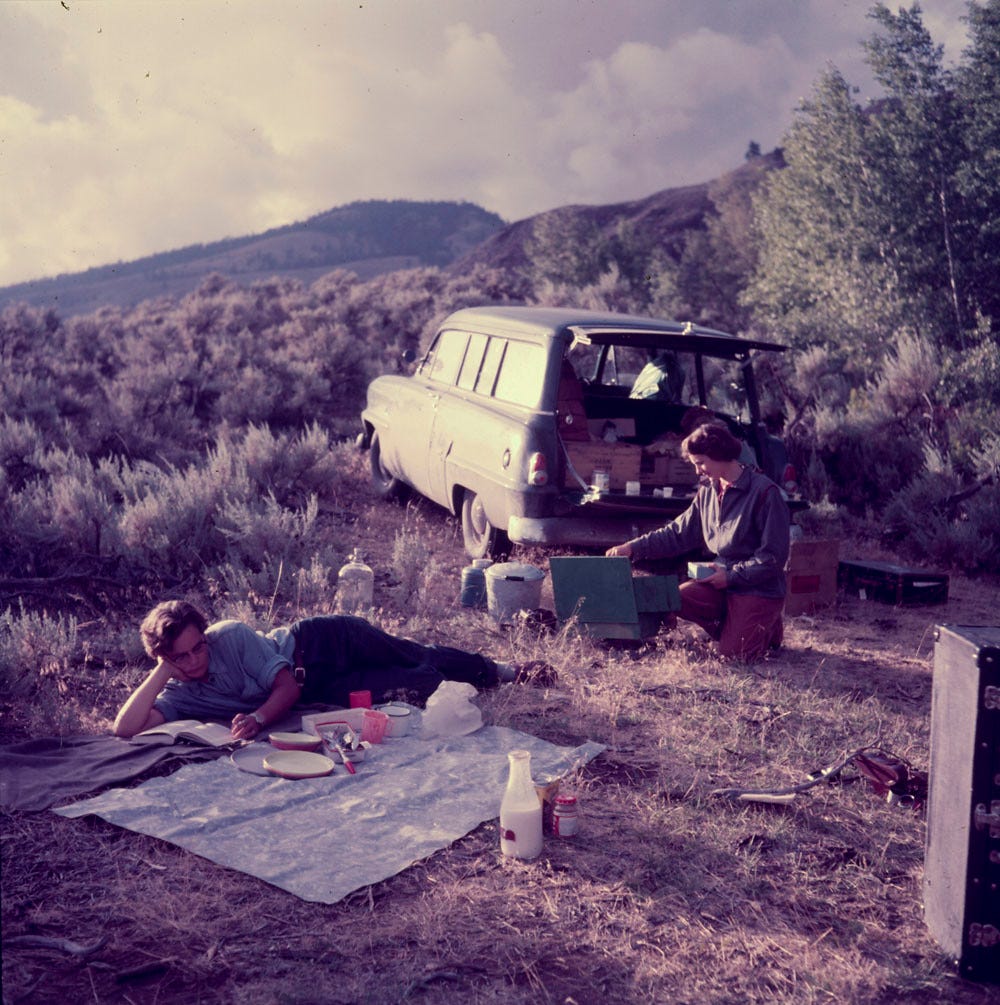"Camping" after the end of Roe v Wade, Don Quixote in Sanskrit and beer fear
The latest language news + what to watch, read and listen to

Greetings linguaphiles, we hope you’re managing to stay cool. Last week’s unprecedented heatwave started a conversation about how we talk about extreme weather events. In the UK, the Health Security Agency put out its first-ever “level 4 heat-health alert”, meaning danger to life. But in a nation that gets such few rays of sunshine, some still refuse to see heat as a negative. Weather forecasts constantly equating rain with “bad weather” may need some rethinking.
The past few weeks we’ve been watching the aftermath of the overturn of Roe v Wade, which was quickly followed by an outpouring of support for women who found themselves stripped of the right to a safe abortion. One strategy involved using code language, with social media posts offering to take people “camping”, “wine tasting” or “to see my cows for the weekend” (code for assisting people seeking abortions out of state). This piece in The Atlantic explains the online campaign and the backlash that followed. Meanwhile, President Joe Biden has also been avoiding the word “abortion”. According to the campaign didbidensayabortionyet.org, he’s only said it once (kind of) since becoming president, which some say reflects a career-long discomfort with discussing the issue.
Ryanair caused controversy last month when it insisted that all South Africans take a test in Afrikaans before boarding flights to the UK, as a way of weeding out people with fraudulent documents. In Uganda, Swahili has become an official language alongside English, and a Sanskrit translation of Don Quixote was rescued from oblivion in the depths of the Harvard University library. We’ve always wondered how many languages a child can learn, and the answer seems to be however many they want (the child, not the parent). According to developmental psychologists, the key motivating factor is “watching others use their language together”.
In an essay published in the New York Times, seventeen-year-old Zoe Yu reminds us that endangered languages are worth saving. A music-led movement is revitalising the Garifuna language in Central America, and Senegalese singer Benoit Fader Keita has resorted to using electro music to save his mother tongue, Mënik, from disappearing. According to Liliana Sánchez, a linguist and professor at the University of Illinois at Chicago, songs don’t just preserve languages but make them “part of their present and their future”.
In Australia, students are learning indigenous languages at a record rate, and in Belarus, more and more people are choosing to speak their natal tongue instead of Russian at a moment when their language is under attack. “Just saying a word in it, like ‘thank you’ or ‘hello,’ means more than just ‘thank you’ or ‘hello’ – it is also a political statement,” Belarusian poet and professor Valzhyna Mort told Aljazeera.
If the UK is still habitable in 100 years, its population will speak Multicultural London English (MLE), i.e. slang, which is set to become Britain’s dominant dialect. Meanwhile, you can learn some new words thanks to Susie Dent’s list of top ten things you didn’t know had a name. Our favourites are “throttlebottom” (a 19th century insult describing an inept person in public office) and the Danish word ølfrygt, which describes the very specific fear of running out of beer.
What we’ve been up to:
Writing: During the pandemic, most parents had no option but to home-educate their children. Now the UK is seeing a growing cohort of home-schooled kids, but with new legislation passing through Parliament, many parents fear it will limit their freedom to choose their children’s education. You can read Aisling’s piece about it here.
Listening: Julia’s been listening to Le Monde’s new climate podcast, Chaleur Humaine, which launched in May. Every week journalist Nabil Wakim looks for answers to everyday questions such as “comment ne pas déprimer?”
Watching: The Netflix documentary Reversing Roe is now more relevant than ever. The film, which came out in September 2018, tells the story of how abortion was politicised in the US and retraces the pro-life movement that led to last month’s Supreme Court ruling.
Reading: Aisling has been getting engrossed in Girlhood by Melissa Febos. An impressive blend of investigative reporting, memoir and scholarship, Febos charts how she and others have reimagined relationships and made room for the anger, grief, power and pleasure women have long been taught to suppress.
Swimming: Summer in the French capital is notoriously difficult once the dreaded canicule hits, but this is made easier with the arrival of Paris Plages, a festival that transforms the banks of the Seine into an urban beach with even a few swimming spots. You can listen to Julia’s radio piece on Monocle24’s The Urbanist.
Travelling: Thirty years from her first summer in the Hamptons, Aisling returned with her parents in tow to see if the exclusive Long Island retreat lived up to the hype. She never knew houses could be so big.
If you enjoyed reading this newsletter, please consider supporting us here.
Was this email forwarded to you? Click the button below to subscribe.
Aisling O'Leary is an Irish journalist based in London, where she works at The Telegraph. You can follow her on Twitter at @JournoAsho
Julia Webster Ayuso is a Spanish-British freelance journalist based in Paris. Her writing has appeared in Time, The Guardian, The New York Times and Monocle. You can follow her on Twitter at @jwebsterayuso




